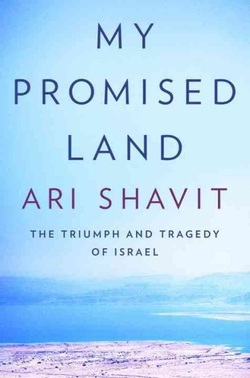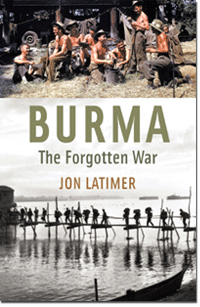Though separated by more than twenty years and two continents, the campaigning 'styles' of Lawrence and Wingate shared some similar features. Both wielded small numbers of men, and avoided sustained combat against larger rival forces. Both took exceptional personal risks. Both fought in foreign lands, and at the head of largely foreign soldiers.
The similarities between the two officers are clear, but the specifics of Wingate's criticisms are not quite as easily discernible. (Besides the Sykes biography, the two best sources for understanding Wingate's critique of Lawrence are two of his Abyssinian soldiers that followed him from Palestine: the officer Anthony 'Tony' Simmonds and the Jewish-Palestinian clerk Avram Akavia.) In his desert campaigns during the First World War, Lawrence had used British money to hire Arab tribesman to conduct irregular warfare against the Ottoman Empire. In Abyssinia in 1940, Wingate sought to use soldiers loyal to the British Empire to inspire Abyssinian 'patriot' forces to rally by his side; Wingate wanted to avoid direct payment and direct distribution of arms. Lawrence appealed to Bedouin patriotism, but he did so with a sense of irony and bemusement: nationalism, he thought, was a paltry motivation for the Bedouin, whereas British gold and war-time honor could provided more effective incentives. Wingate viewed Lawrence's approach as too close to bribery; Wingate wanted to appeal to patriotism and pride, and refused to allow direct payments to Abyssinian militia leaders or their followers.
The puzzling aspect of Wingate's critique is that, despite their technical differences, it seems as if Lawrence still could have served as an advantageous and famous model of successful irregular warfare, thus inspiring Wingate's commanders to devote further resources to his campaign; and Wingate, if nothing else, was obsessed with clawing for more resources. In fact, Field Marshal Archibald Wavell plainly states that Lawrence's previous efforts in WW1 directly influenced Wavell's deployment of Wingate in WW2 (see The Good Soldier, 1948). But instead of substantiating an ostensibly favorable comparison, Wingate denigrated Lawrence's methods as wasteful and ineffective. Why?
First, I want to avoid rarifying 'denigration.' Denigration occurs in everyday life on a regular basis. In front of spouses, friends, and partners, human beings denigrate potential rivals to sculpt their own status position relative to that of the rival. Some typical, casual examples include: "He's not that good of a writer." "If only her talent could keep pace with his ambition." "She's pretty, but she doesn't have taste." Denigration occurs for other reasons, however, besides rivalry for status. Other possibilities include 1) a genuine disagreement about strategy 2) Jealousy.
I think that rivalry over status is the best answer. It doesn't matter that Lawrence was dead; rivalry is not a 'reasonable' thing. It's a basic mechanism that propels us unwittingly forward. It often happens subconsciously, and rarely needs to justify itself.
Wingate, however, was a pensive officer, and he was the sort that would search-out a basis for his feelings about Lawrence. I think it's likely that Wingate not only disliked Lawrence's 'methods,' but found fault with Lawrence's personal conduct during military operations. In particular, Wingate probably felt that Lawrence had abdicated his personal responsibilities as an officer to play too-much the desert warrior.
A quick comparison of the two men can highlight their differences in outlook: Whereas Wingate was a career-oriented soldier, Lawrence was an amateur officer. Wingate never lost any family members to war, but Lawrence lost two brothers before embarking on the campaign to take Aqaba. Wingate preferred leading professional soldiers on well-organized campaigns; Lawrence had a respectful but difficult relationship with professional soldiers, and preferred fighting alongside loose bands of Arab raiders. Wingate directed and orchestrated violence in the traditional manner of an officer, whereas Lawrence preferred hands-on violence in the style of a medieval knight (and hated/loved himself for it).
There are no records of Wingate actually shooting an enemy in combat--he was too busy maintaining his erratic supply line and keeping his troops on a relentless march. Lawrence, however, fired his weapon often, and preferred the emotional rush of battle to the more mundane tasks typically required of officers in combat. Lawrence's emphasis on action, in Wingate's view, was an abdication of responsibility.
Lawrence, I think it's fair to say, had a much better nose for politics, bureaucratic maneuvering, and power. He could also express his thoughts clearly, eloquently, and in an interesting way. But despite his clear talent for political life, Lawrence prioritized his efforts in the second-half of the First World War towards hands-on participation in violence. His own memoir, Seven Pillars of Wisdom, and his letters from that time period show a keen awareness of the ongoing political situation in the Levant. But those same sources also point to the fact that Lawrence was more interested in being involved in raids and ambushes.
Wingate seems to have noticed the peculiarities of Lawrence's behavior as an officer, and he also noticed that Lawrence used direct payment because this was Lawrence's easiest and quickest way to get rid of the resources the British Empire offered him, thereby freeing Lawrence to charge back into the mix on personal terms.
Only once Lawrence was in Damascus did he refocus his energies towards politics; but at that point, it was too late. The Arab forces that he had he supplied and fought with lacked the hierarchical structure and discipline necessary to successfully occupy and manage a city. Lawrence also did not concern himself with the legitimacy of his occupation of Damascus, or how it would be perceived by the locals. (I am not saying that the British Army's occupation of Damascus was legitimate; I am just pointing out that they were better prepared for it.)
Wingate had a bold imagination, and he was unusually lucky in his guesses on how things would turn out. But his writings betray a lack of specificity and accurate knowledge of human behavior. He was very smart, energetic, and imaginative--but he was not as accurate or precise of an observer of human political behavior as Lawrence. Wingate did, however, simply care more about politics: he took steps at every juncture of his planning to build working, useful coalitions. And Wingate bothered to make assessments about whether or not his plans gelled with the local political situation in the Sudan, Palestine, Abyssinia, and Burma. That's not to say that Wingate was a purely strategic animal: like most generals, his goal was not to win the war, but to ensure that his campaign succeeded. The terms of a success in a campaign can be objectively measurable, even if they are also objectively pointless from a wider perspective. Wingate was perfectly comfortable with that paradox; Lawrence tried (and failed) to ignore it, which led to a crises of consciousness for the rest of his life, and to his writing of a Seven Pillars of Wisdom, a memoir seeped in self-searching and unrest.
I think Wingate deserves some credit for his reading of Lawrence's outlook on military affairs. While Lawrence did not deserve the harsh disparagement that he received from Wingate, Wingate did notice Lawrence's unusual motives for war. And he probably saw that Lawrence's personal motives diverged from those of career soldiers and politicians.
From a distance, the tactical approaches of Wingate and Lawrence still resemble one another. They rode similar horses towards similar objectives, but they rode for different reasons, and these differences materially affected the lives of their men, the results of their campaigns, and their own self-regard at each step of the journey.


 RSS Feed
RSS Feed